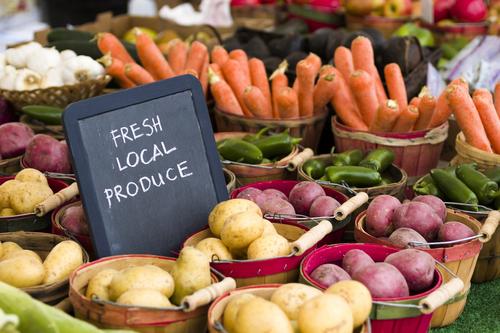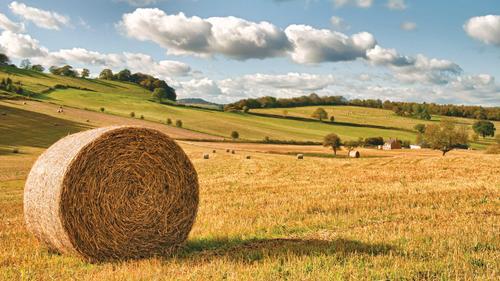Local food is food that is grown within a geographical region that is considered local to your specific area. This can be food grown in your city, neighbourhood, or home! There are various health and economic benefits of buying locally grown food. For instance, it promotes food safety and supports the local economy, but have you ever wondered how buying local could benefit the environment?
 Source: The Wholesome Heart
Source: The Wholesome Heart
Decrease in Food Miles: One of the most crucial ways purchasing local food helps the environment is by reducing food miles. The term “food miles” refers to the distance that food travels to reach your local supermarket. The more food miles collected during food transportation, the more fossil fuels are burned, allowing more harmful greenhouse gas emissions to be released into the atmosphere. Imported food at the supermarket often travels thousands of miles to get there, all through lengthy truck and plane trips. This not only causes massive fuel consumption and pollution, but also involves the need for facilities such as refrigeration that consumers vast amounts of energy. Purchasing local food, however, doesn’t require any of this as it involves purchasing goods that have been produced in your local environment. Overall, if we buy local produce and goods, we can cut down on our food miles and reduce our greenhouse gas emissions significantly!
 Source: Financial Times
Source: Financial Times
Protects Local Land: Buying local food can help protect local land and wildlife. When we purchase local products, we support our local farmers and help them successfully operate their business. When this happens and farmers are compensated well for their products, they are less likely to sell their land, which would often be redeveloped for industrial or commercial use. These uses would release significantly more greenhouse gas emissions than farming does and would further eliminate habitats for the wildlife living on the local area.
 Source: Giles Farm
Source: Giles Farm
Creates Fresh Produce: By purchasing and eating locally, consumers are able to appreciate produce that is fresh and healthy. Many local farmers tend to keep their products organic, preservative free, and pesticide free. This is not only advantageous for the health of consumers, but is beneficial for the environment as well. By not using pesticides and other harmful toxins, farmers are improving air quality and preventing water and air pollution. Furthermore, since the food is local and is directly given to supermarkets, there is often less waste. For instance, many imported goods often go bad before they are purchased, producing lots of waste. By buying local, this is avoided and food waste is significantly less.
Ready to eat locally?
At UW Food Services we support over 75 local farmers and aim to provide as much local and fresh produce as we can! Our residences and some of our food units on campus can be your starting place when it comes to eating locally sourced food.
Check out this video of UW Food Services purchasing local produce from the Elmira auction and bringing it back to campus!
Want to purchase fresh produce and create your own homemade meal? In September, we host a farmer’s market with local food and fresh produce! Stay posted and follow our social media accounts to learn more about this upcoming event!
References
Thompson, A. (2017). The Environmental Benefits of Buying Locally. Retrieved from http://www.gogreen.org/blog/the-environmental-benefits-of-buying-locally
Top Benefits of Buying Locally Grown Food. (2017). Retrieved from https://arrowquip.com/blog/animal-science/top-benefits-buying-locally-grown-food





